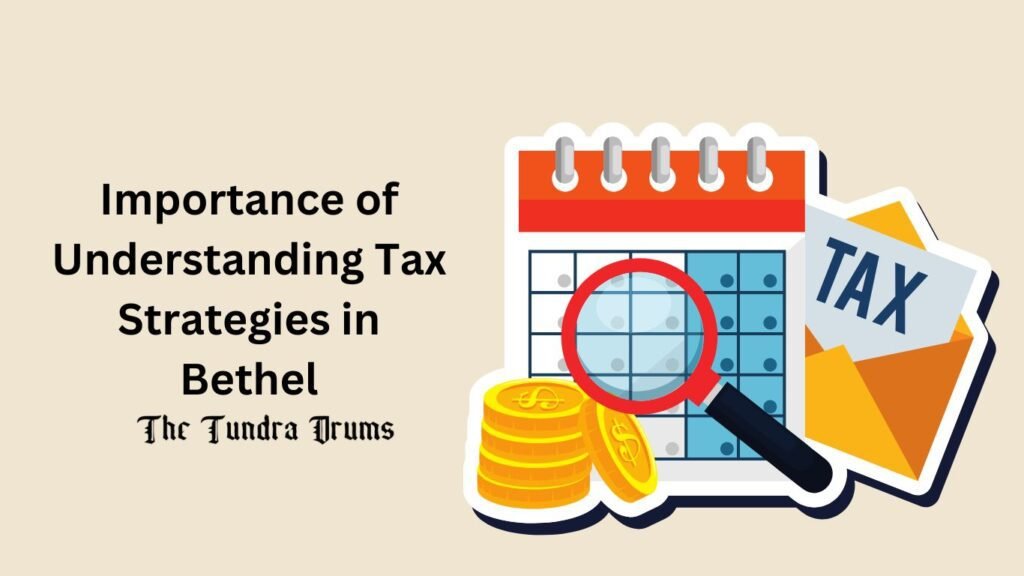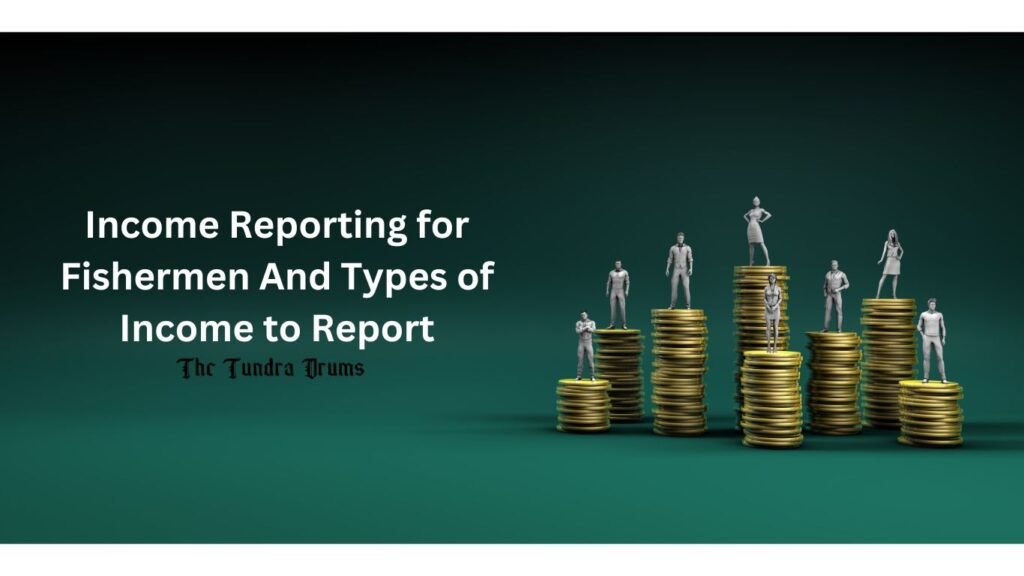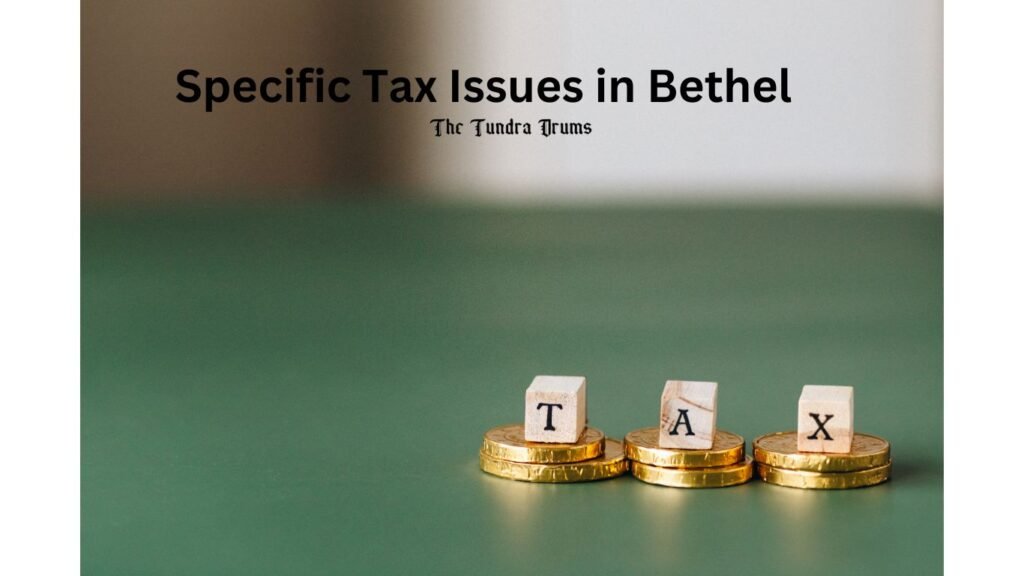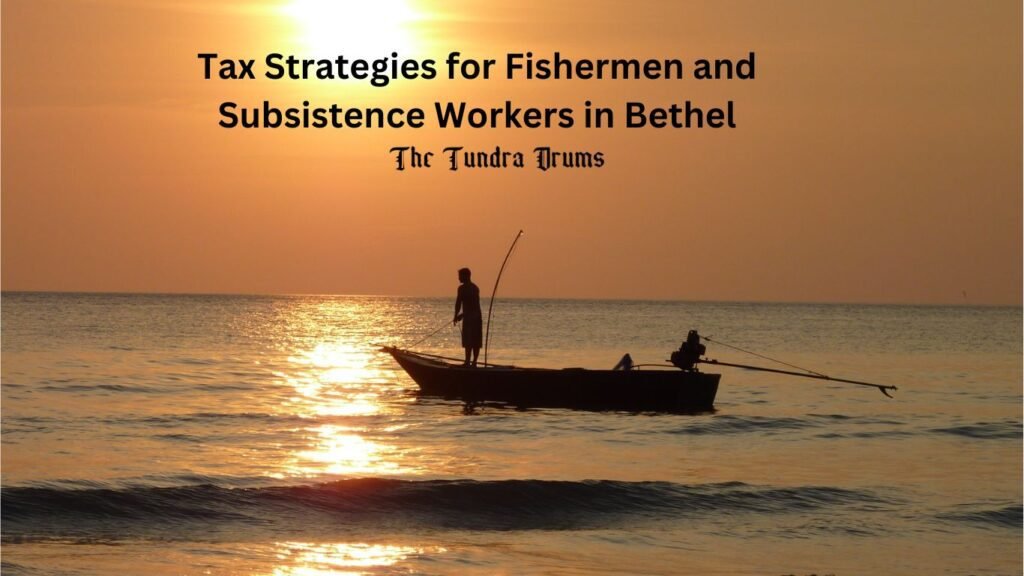Living in Bethel, Alaska, means being part of a unique community where fishing and subsistence activities are more than just jobs—they’re a way of life. However, managing the financial aspects of these activities, especially taxes, can be a bit tricky. Whether you’re casting nets in the Kuskokwim River or hunting for seasonal game, understanding effective tax strategies can make a significant difference in your bottom line.
I’ll be sharing practical tips and insights tailored specifically for Bethel’s fishermen and subsistence workers. With the right knowledge, you can ensure that more of your hard-earned income stays in your pocket, supporting your family and sustaining your way of life. Let’s dive into some straightforward strategies that can help you navigate the tax waters with confidence.
Importance of Understanding Tax Strategies in Bethel

Understanding tax strategies is crucial for fishermen and subsistence workers in Bethel, Alaska, due to the unique economic and regulatory environment they operate in. Bethel residents often rely heavily on seasonal fishing and hunting, which can create irregular income patterns. Effective tax planning helps manage these fluctuations by taking advantage of specific deductions and credits available for equipment, supplies, and travel expenses. Additionally, Alaska’s Permanent Fund Dividend adds another layer to tax considerations, making it essential for residents to understand their tax obligations fully to maximize their financial benefits and ensure compliance with state and federal tax laws.
Income Reporting for Fishermen And Types of Income to Report

Fishermen need to report various types of income, including:
- Earnings from Sales: Income from selling fish, shellfish, and other marine products.
- Payments for Services: Income received for services provided, such as guiding or chartering.
- Crew Shares: Income received as part of a crew share arrangement on a fishing vessel.
- Subsidies and Grants: Any government subsidies or grants received for fishing activities.
Tracking Income Accurately
Accurate income tracking is essential for proper fishing tax reporting. Fishermen should:
- Maintain Detailed Records: Keep logs of daily catches, sales, and any payments received.
- Use Accounting Software: Utilize software designed for small businesses to track income and expenses efficiently.
- Keep Receipts: Store all receipts from sales and services to substantiate income reported.
- Regular Reconciliation: Regularly reconcile bank statements with recorded income to ensure all earnings are accounted for.
Reporting Seasonal Income
Given the seasonal nature of fishing, it’s crucial to report income accurately throughout the year:
- Quarterly Estimates: Make quarterly estimated tax payments to avoid penalties, reflecting seasonal income spikes.
- Annual Adjustments: Adjust income reporting and tax payments based on seasonal earnings fluctuations to ensure correct annual tax liability.
- Cash Flow Management: Manage cash flow effectively to cover tax obligations during off-season periods when income may be lower.
Income Reporting for Subsistence Workers
Defining Subsistence Income
Subsistence income refers to the value derived from activities aimed at meeting basic needs through hunting, fishing, gathering, and other means. This income is not always in the form of cash but can include the value of goods and services used for personal or family sustenance.
Reporting Methods for Non-Traditional Income
For subsistence workers, non-traditional income includes goods and services obtained through barter or self-provision. Key reporting methods include:
- Fair Market Value: Report the fair market value of goods and services obtained through subsistence activities or bartering.
- Detailed Record-Keeping: Maintain records of all subsistence activities, including the types and amounts of goods gathered or traded.
- Annual Summary: Summarize the total value of subsistence goods and services at the end of the year for accurate reporting on tax returns.
Handling Gifted or Bartered Goods
Goods received as gifts or through bartering must be reported as income:
- Gifts: Generally, the recipient does not need to report gifts as income, but the donor may have tax obligations if the value exceeds the annual exclusion limit.
- Bartered Goods: Report the fair market value of goods or services received through bartering. For example, if you trade fish for equipment, the value of the equipment received must be reported as income.
- Documentation: Keep detailed records of all bartering transactions, including the date, parties involved, and the fair market value of the goods or services exchanged.
Common Deductions for Fishermen
1- Equipment and Maintenance Costs
Fishermen can deduct the cost of purchasing, repairing, and maintaining boats, nets, traps, and other fishing equipment. Depreciation of larger equipment over its useful life can also be deducted.
2- Fuel and Travel Expenses:
Fuel used for boats and other equipment is deductible. Travel expenses related to fishing activities, such as transportation to and from fishing sites, can also be claimed.
3- Insurance Premiums:
Premiums paid for insurance on boats, equipment, and business liability are deductible.
Common Deductions for Subsistence Workers
1- Equipment and Gear Costs:
- Costs for tools and equipment used in subsistence activities, like hunting rifles, fishing gear, and gathering tools, are deductible.
- Maintenance and repair costs for these items can also be included.
2- Travel Expenses Related to Subsistence Activities:
- Expenses for travel to and from hunting, fishing, or gathering locations are deductible.
- Mileage for vehicles used in these activities can be claimed using the standard mileage rate or actual expenses.
3- Food Preservation and Storage Costs:
- Costs associated with preserving and storing subsistence food, such as canning supplies, freezers, and storage containers, are deductible.
Available Tax Credits
1- Earned Income Tax Credit (EITC):
- The EITC is available to low-to-moderate-income workers, including fishermen and subsistence workers, who meet the income requirements.
- The credit amount varies based on income and the number of qualifying children.
2- Child Tax Credit:
- This credit is available to taxpayers with dependent children under the age of 17.
- It provides a significant reduction in tax liability and may be partially refundable.
3- Credits Specific to Alaska Residents:
- Alaska Permanent Fund Dividend (PFD): While not a tax credit, the PFD must be reported as income, and some credits may offset the tax impact of receiving the PFD.
- Alaska Education Credits: Businesses in Alaska, including those run by fishermen, may qualify for tax credits for contributions to educational institutions.
- Renewable Energy Credits: Credits may be available for renewable energy projects, which can be relevant for fishermen and subsistence workers investing in sustainable practices.
Specific Tax Issues in Bethel

Navigating Alaska’s Unique Tax Environment
Alaska’s tax environment is distinct because the state does not have a personal income tax or state sales tax. However, residents, including those in Bethel, must still comply with federal tax obligations. Key considerations include:
- Permanent Fund Dividend (PFD): This annual payment to Alaska residents must be reported as income on federal tax returns.
- Self-Employment Tax: Fishermen and subsistence workers who are self-employed need to pay federal self-employment tax, which covers Social Security and Medicare contributions.
Local Tax Incentives and Benefits
While Alaska does not have a state income tax, there are local tax incentives and benefits that Bethel residents can leverage:
- Renewable Energy Credits: Incentives may be available for renewable energy projects, which can be particularly beneficial for remote areas like Bethel where energy costs are high.
- Education Tax Credits: Contributions to educational institutions in Alaska can provide tax benefits, which can be leveraged by businesses and individuals.
- Property Tax Exemptions: Certain property tax exemptions may be available at the local level, providing some financial relief for residents.
Impact of Remote Location on Tax Filings
Bethel’s remote location presents unique challenges and considerations for tax filings:
- Access to Services: Limited access to professional tax services may necessitate reliance on online resources or self-preparation of taxes.
- Internet and Communication: Slower internet speeds and limited communication infrastructure can affect the timely filing of taxes and access to online tax tools.
- Shipping and Handling Costs: Higher costs for shipping and handling of goods and services can impact business expenses and deductions.
- Record-Keeping: Maintaining thorough records is crucial, as delays in mail and logistics can affect the receipt and submission of necessary tax documents.
Tax Planning Throughout the Year
Setting Aside Funds for Tax Payments
Effective and best tax strategies involves setting aside funds throughout the year to cover tax payments. This approach helps avoid financial strain when taxes are due. Key practices include:
- Regular Savings: Allocate a percentage of each income received to a separate savings account dedicated to tax payments.
- Budgeting: Include estimated tax liabilities in your monthly budget to ensure consistent savings.
Quarterly Estimated Taxes: Why and How
Self-employed individuals, including fishermen and subsistence workers, are required to make quarterly estimated tax payments to avoid penalties. Here’s how to manage taxation plannin process:
- Why: Quarterly payments ensure that your tax liability is covered throughout the year, preventing a large lump sum payment at the end of the year and avoiding IRS penalties for underpayment.
- How:
- Calculate Estimated Income: Project your annual income tax strategies and expenses to estimate your taxable income.
- Determine Tax Liability: Use the IRS Form 1040-ES to calculate the amount of tax owed each quarter based on your estimated income.
- Schedule Payments: Make payments by the IRS deadlines (April 15, June 15, September 15, and January 15 of the following year).
- Adjust as Needed: Regularly review your income and expenses, adjusting your estimated payments if your income fluctuates significantly.
Strategies for Reducing Tax Liability
Implementing strategies to reduce tax liability can help maximize your financial resources. Consider the following approaches:
- Maximize Deductions:
- Business Expenses: Deduct all eligible business-related expenses, including equipment, maintenance, and travel costs.
- Home Office Deduction: If you use part of your home exclusively for business, you can deduct associated expenses.
- Take Advantage of Credits:
- Earned Income Tax Credit (EITC): Ensure you qualify and claim this credit if your income tax planning meets the criteria.
- Child Tax Credit: Claim this credit if you have dependent children under the age of 17.
- Retirement Contributions: Contributing to retirement accounts, such as a SEP IRA or a traditional IRA, can reduce your taxable income while saving for the future.
- Keep Detailed Records: Maintain thorough and accurate records of all income, expenses, and deductions to ensure you can substantiate your claims and maximize your tax benefits.
Encouragement to Seek Professional Advice
Taxes can be confusing, especially for fishermen and subsistence workers in Bethel. While it’s important to know the basics, getting help from a tax professional can make a big difference. They can give you personalized advice, make sure you’re following all the rules, and find deductions and credits you might miss. They understand the unique challenges of seasonal income and specific industry deductions. With a tax advisor, you can better manage your taxes, lower your tax bill, and focus on your work. Getting professional help is a smart way to secure your financial future and reduce stress.











